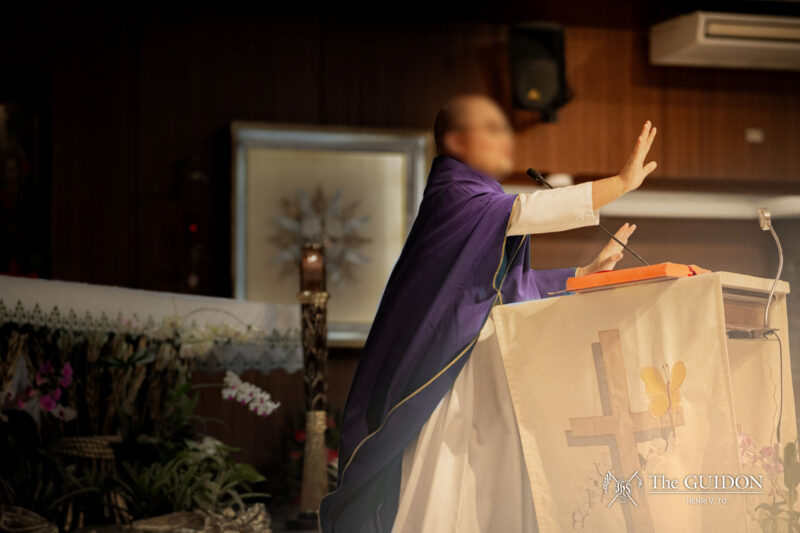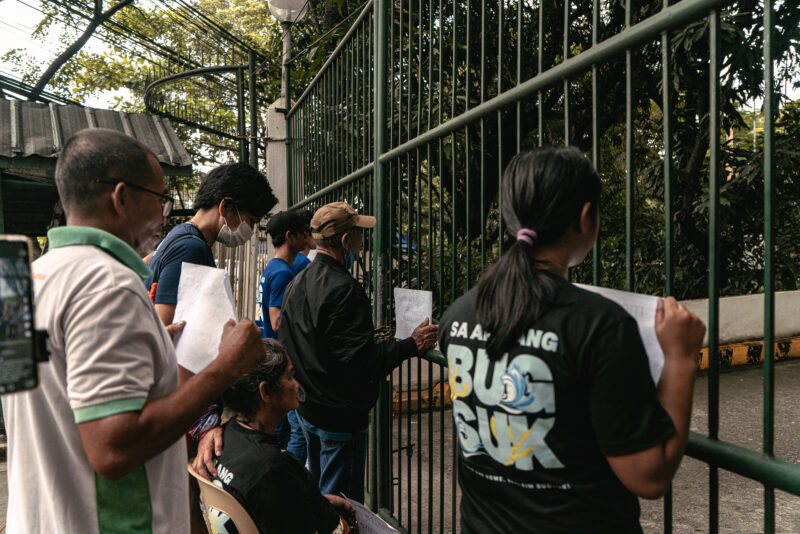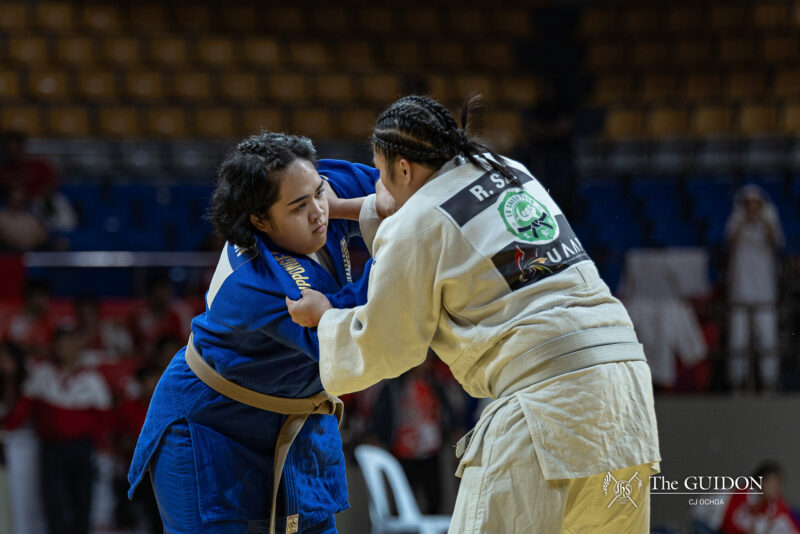It is 4:30 pm on a school day and the Loyola Schools Covered Courts is a hive of activity. Students fly up and down the courts, fully engaged in spirited competition. Screams from the spectators commingle with the officials’ whistles, creating the unique, unmatched atmosphere of the IAC.
The IAC, for some, is a large part of college experience. “[College] would be very different without the IAC,” says player Goodyield Chu (II BS Mgt). “It’s an experience in itself.”
Most, however, fail to notice an integral part of the whole IAC concept—the officials’ whistles, which, even you, the reader, probably overlooked in the opening paragraph.
While they are unquestionably some of the most screamed-at people during the games, the referees are hardly ever under the hype’s spotlight. “I just say hi, usually, but we’re not really close,” says Goodyield.
Highly trained
Although frequently disgruntled players might disagree, the IAC holds high standards when choosing their referees. “There are certain qualifications that we look for when scouting referees,” says John Ramirez, Physical Education instructor and tournament co-organizer. “We make sure that they really understand the game.”
The referees are trained, officiating being a major part of their studies. “Learning to officiate games is a course in our school,” says Ariel dela Cruz, an IAC referee of four years, in Filipino. Dela Cruz is an alumnus of the Polytechnic University of the Philippines (PUP) and has been trained to officiate sports like basketball, badminton, and soccer.
The quality of IAC games is owed much to this degree of professionalism in officiating. “In high school, the officials are mostly students, the IAC is more fun because the referees are professionals,” says Drew Copuyoc (II BS ME), another IAC regular. For Drew, it makes all the difference. “The IAC feels really different from high school intramurals. It feels like real competition. It’s like the varsity league I never played in.”
Ramirez says that the referees, being pros at what they do, help significantly in imparting knowledge to the students as players. “Aside from training the referees, we also want to train the students,” he says. “The students face adjustments from high school games to college, and the referees teach them [more] about the rules as well.”
IAC referee Eric Gonzales says that a lot of disputes arise from ignorance of the rules. “Sometimes, players don’t know the correct rules, so we have to explain. Consequently, they get to learn about the right rules and regulations.” he says in Filipino.
Joy of the game
Though a significant factor for taking a job as referee is extra income—“Estudyante rin kami at nakakatulong talaga ‘yong income sa’min (We’re also students; the income really helps us),” says Gonzales—the financial aspect isn’t the only thing that makes the job worth doing.
Meeting students with venerable sportsmanship is something encouraging, too. “Mababait ang mga estudyante rito, walang mga abusado (Students are nice here, no one’s abusive),” says Ruben Cabacungan, a referee since 1969. A veteran of 40 years of the IAC wars, Cabacungan has developed a unique attachment to officiating in the games. “‘Yong pinakamasamang bagay sa pagrereferee? ‘Yung may natatalo. Kung pwede sana pareho manalo, ang ganda ng mga laro. (The worst thing about being a referee? That a team loses. If only all teams can win, the games are really good.)”
His younger colleagues seem to share similar sentiments. Dela Cruz says, “If I didn’t enjoy the job, then I wouldn’t stay here for four years, right? Kahit part time lang yung trabaho, enjoy ako dito, mababait yung mga tao. (…) ‘Pag sinabihan akong ‘Thanks ref,’ natutuwa ako dahil ibig sabihin no’n maganda ang trabaho ko. (Though the job is only part-time, I enjoy it here, the people are nice. (…) When players say, “Thanks ref,” I’m gladdened because that only means that I did my job well.)”
As for inevitable incidents where a player disagrees with the call, Dela Cruz just shrugs. “We do our best, really,” he says.
Outside the lines
After the games’ final whistle, the referees move on to a double life. Dela Cruz also coaches a basketball team of kids in Bulacan. Gonzales, meanwhile, used to be a varsity baseball player. He says several referees in the Ateneo are athletes, too.
Cabacungan, meanwhile, monitors the Covered Courts. If there is something that needs to fixed or set up, Cabacungan is in charge.
Refereeing for the IAC can serve as a springboard for future jobs, says Ramirez. He says referee organizations from outside Ateneo occasionally scout the IAC games to see if there are any potential hires.
Real games are with rules
Though not habitually recognized, the referees and their work are well appreciated by players. “Aside from the games being more fair and well-officiated, the interactions with the referees make them fun. [They aren’t stuck-up], they laugh and joke around with the players. All in all, they make the IAC experience fairer and more enjoyable,” says Goodyield.
Drew says that the IAC is a place where friendships and camaraderie are formed, but not necessarily restricted to the players. He says, “May mga ibang player na close na talaga sa refs. ‘Yong mga hasa sa IAC at yung mga magagaling, nakikita mo ang respeto ng player sa ref at ng ref sa player. (There are players who are really close to the referees. With those players who have been playing in IAC for a long time and those players who are good, you can see their respect for the referees and the referees’ respect for them.)”
Goodwill in the IAC isn’t just limited to the students, either. The referees, too, find themselves sharing in the experience. “Malaking bagay ang [pagiging] referee sa IAC (Refereeing for the IAC is a big deal),” says Cabacungan. “Nakikilala namin ang mga player, mga estudyante. (We get to know the players, the students.)”
The benefits transgress interpersonal relationships, says Dela Cruz. “I also learn leadership, control. I am molded as a person.”
Gonzales says, “Nakakatulong talaga ito sa amin, malaking bagay talaga ang pagtrabaho namin dito. Ang mapunta at magtrabaho sa Ateneo, hindi nabibili ng pera ‘yan. (Refereeing really helps us, our job here is important. To be able to go and work in Ateneo, that can’t be bought.)”







Correction — IAC stands for Intramural Athletics Council. 😀